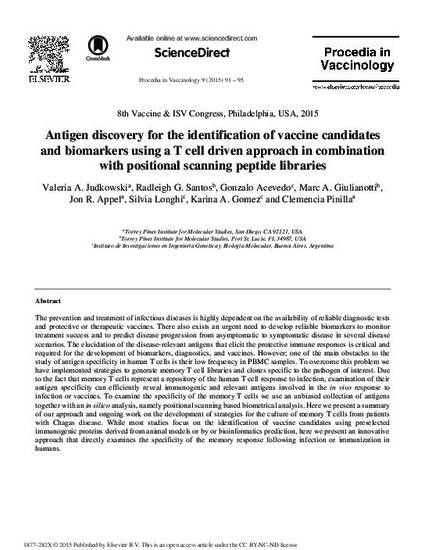
- Antigen discovery,
- Vaccine candidates,
- T cells,
- T cell specificity,
- Human T cells
The prevention and treatment of infectious diseases is highly dependent on the availability of reliable diagnostic tests and protective or therapeutic vaccines. There also exists an urgent need to develop reliable biomarkers to monitor treatment success and to predict disease progression from asymptomatic to symptomatic disease in several disease scenarios. The elucidation of the disease-relevant antigens that elicit the protective immune responses is critical and required for the development of biomarkers, diagnostics, and vaccines. However; one of the main obstacles to the study of antigen specificity in human T cells is their low frequency in PBMC samples. To overcome this problem we have implemented strategies to generate memory T cell libraries and clones specific to the pathogen of interest. Due to the fact that memory T cells represent a repository of the human T cell response to infection, examination of their antigen specificity can efficiently reveal immunogenic and relevant antigens involved in the in vivo response to infection or vaccines. To examine the specificity of the memory T cells we use an unbiased collection of antigens together with an in silico analysis, namely positional scanning based biometrical analysis. Here we present a summary of our approach and ongoing work on the development of strategies for the culture of memory T cells from patients with Chagas disease. While most studies focus on the identification of vaccine candidates using preselected immunogenic proteins derived from animal models or by or bioinformatics prediction, here we present an innovative approach that directly examines the specificity of the memory response following infection or immunization in humans.
Available at: http://works.bepress.com/radleigh-santos/17/

Under a Creative Commons license